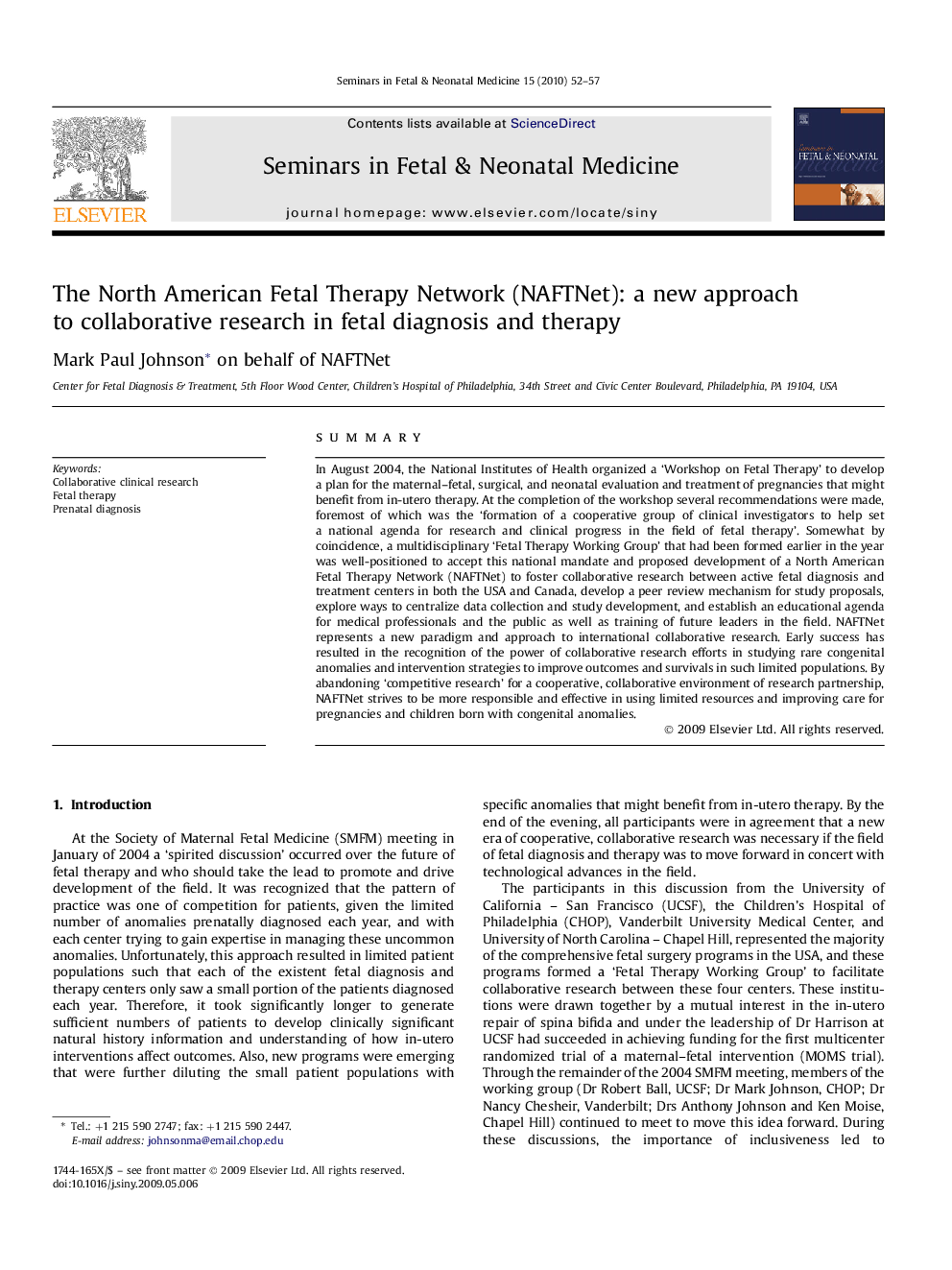| Article ID | Journal | Published Year | Pages | File Type |
|---|---|---|---|---|
| 3974227 | Seminars in Fetal and Neonatal Medicine | 2010 | 6 Pages |
SummaryIn August 2004, the National Institutes of Health organized a ‘Workshop on Fetal Therapy’ to develop a plan for the maternal–fetal, surgical, and neonatal evaluation and treatment of pregnancies that might benefit from in-utero therapy. At the completion of the workshop several recommendations were made, foremost of which was the ‘formation of a cooperative group of clinical investigators to help set a national agenda for research and clinical progress in the field of fetal therapy’. Somewhat by coincidence, a multidisciplinary ‘Fetal Therapy Working Group’ that had been formed earlier in the year was well-positioned to accept this national mandate and proposed development of a North American Fetal Therapy Network (NAFTNet) to foster collaborative research between active fetal diagnosis and treatment centers in both the USA and Canada, develop a peer review mechanism for study proposals, explore ways to centralize data collection and study development, and establish an educational agenda for medical professionals and the public as well as training of future leaders in the field. NAFTNet represents a new paradigm and approach to international collaborative research. Early success has resulted in the recognition of the power of collaborative research efforts in studying rare congenital anomalies and intervention strategies to improve outcomes and survivals in such limited populations. By abandoning ‘competitive research’ for a cooperative, collaborative environment of research partnership, NAFTNet strives to be more responsible and effective in using limited resources and improving care for pregnancies and children born with congenital anomalies.
